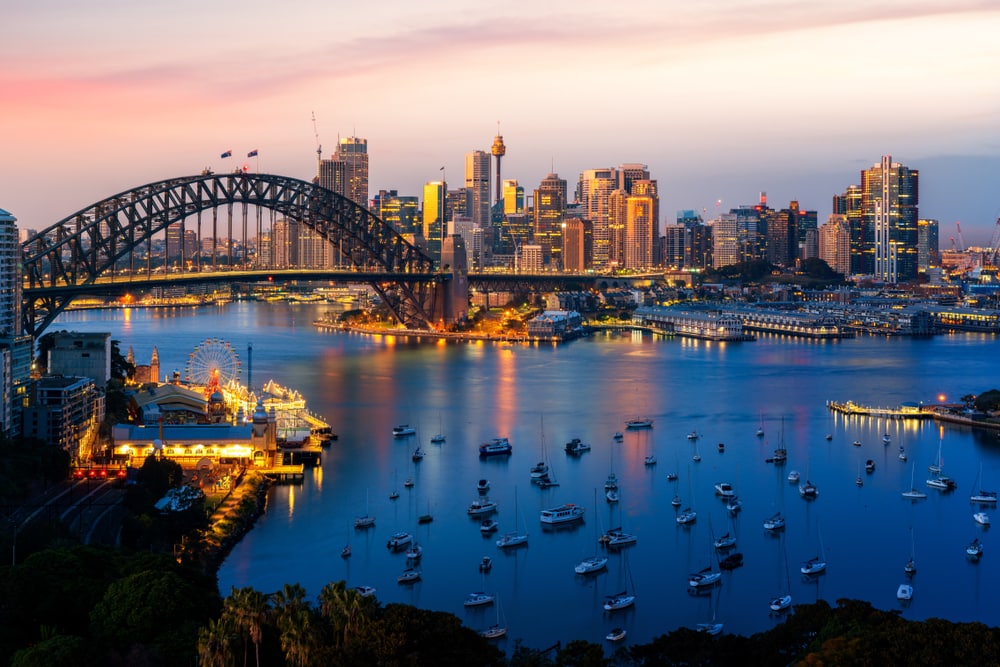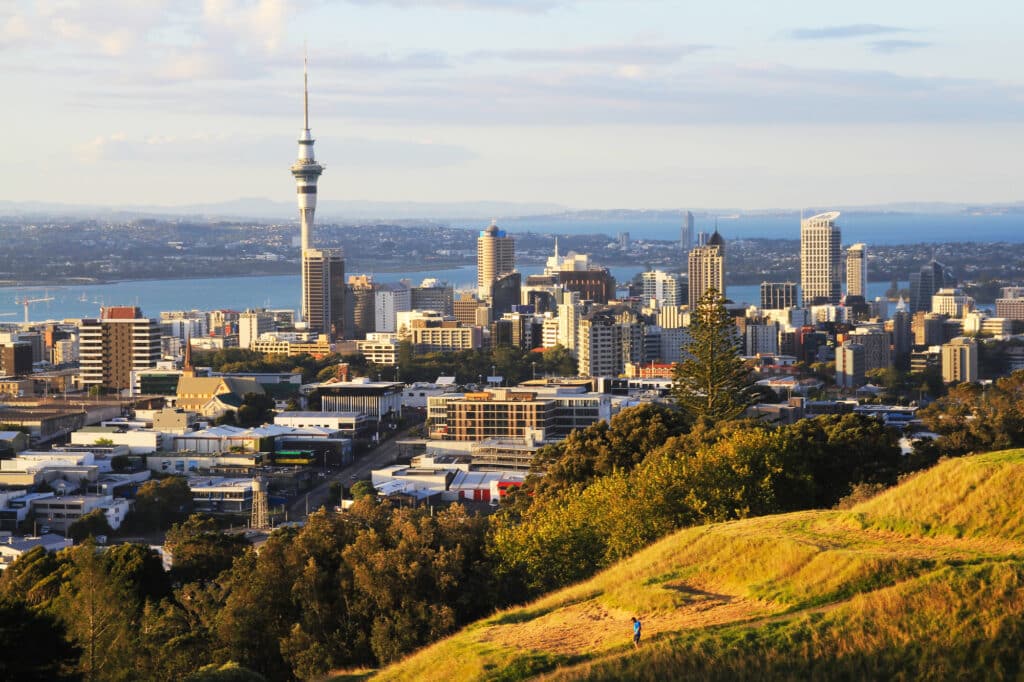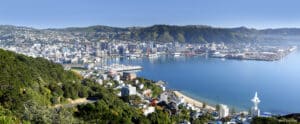First of all, this article would cover information that is useful for the people who belong to either of the category given below.
- Expats of other countries moving to New Zealand
- New Zealand people who were living as expats in other countries and plan on returning to New Zealand

Investment opportunities in New Zealand:
Whether it is the first time you are moving to New Zealand or you happen to have lived there for many years but got yourself into investments abroad, there are several financial and tax implications that should be considered.
Keeping that aside for another day, there are several investment options for expats in New Zealand, which can also be utilized by the people who lived in New Zealand but are living abroad.
Let us have a brief look at some of the best available investment opportunities in New Zealand.
1. Cash Deposits:
Cash Deposit refers to depositing money in your bank account where you either put your money into an interest-earning bank account that is easily accessible or a term deposit account where the money is out of reach for a specific period.
Although interest-earning bank accounts offered by most banks are quite lucrative, substantially higher returns are offered with term deposits.
You can be able to decide the particular period for your deposit, which usually ranges between 1 month to 5 years depending on the bank or financial institution.
The money deposited within such an account would generally offer the principal amount along with the interest earned from that.
Additionally, you’ll have easy access to the money deposited, which you can withdraw from a bank account whenever you need. Despite the fact that term deposits are accessible, you’ll lose a fraction of your profits as a ‘break fee’ or a ‘Penalty’. As most people might already know, and those who don’t know should know the fact that New Zealand banks offer drastically low-interest rates. Therefore, it might be a tad bit tough to earn more than 1%, or in some cases 2%, which is comparatively low and not enough to cope with the inflation of the country.
- Heartland Bank YouChoose Bank Account (0.5% p.a. on balance; paid monthly)
- TSB Personal bank account (interest paid on balance over $10,000)
The bitter truth is that most banks pay low-interest rates which could be around 0.05% to 0.25% on the balance maintained. This means you would usually get around $0.5 to $2.5 for a balance of $1,000 maintained in your account.

2. KiwiSaver:
KiwiSaver is a voluntary savings scheme that is tailored with proper planning and a dedication to regular contributions. This scheme makes the process of retirement rather comfortable and provides a better lifestyle.
People who are trying to make a regular contribution towards their savings nest egg can do so with the help of KiwiSaver.
Adding to that, individuals can’t touch their contributions before they turn 65 unless for some specific purposes such as buying a house. Moreover, they can still continue with other investments on the side.
An excellent feature of Kiwisaver is that when people make a contribution of more than $1,042.86, then the government will contribute a maximum of $521.43 on its behalf.
When a person opts for KiwiSaver, they can either pick a fund by themselves (in which they like to invest), or else, the IRD (Inland Revenue Department) picks one for them.
Following that, the employer of the individual should contribute an amount of 3% of the person’s gross salary into your KiwiSaver fund. The individual is also required to contribute an amount of at least 3% of their gross salary as well.
The fees involved with KiwiSaver are those charged by the fund, which usually comprises of two types of yearly fees. Firstly, there is a management fee of around 0.25% to 2.00% of the value of the fund, along with a membership fee less than or equal to $50.
The risk may be high or low depending on the invested fund. There may be fluctuations if you opt for a growth fund, where the investment would be made in the stock market.
Nevertheless, KiwiSaver is known to have an increase in its value in the long term. The returns also differ on the basis of the type of fund in which a person invests. which are usually low to medium.
Anyone can become a part of the KiwiSaver as it is free to join, and an employer is necessitated by New Zealand’s government to invest 3% of a person’s salary into the fund.
As the membership fees are around $50 a year or even less, and management fees decrease over time, individuals are offered higher returns. Additionally, there are hundreds of funds to select from.
Finally, KiwiSaver is an ideal savings scheme for many people as the invested capital can’t be accessed until retirement. This basically means that the profits compound year-on-year and result in a bigger savings nest egg.
People who want to have easy access to their capital or if they are looking for an investment that is short-term, then they might not find the KiwiSaver scheme advantageous.
For more information on managed funds and other types of funds, click here.
3. Shares:
As everyone knows, when a person buys a share of a company, then he or she would own a fraction of that company. People generally invest in shares believing to get profits as capital gains or dividends.
If you gain access to the general information regarding shares, stocks, and stock markets and know more about them, then click here.
Shares happen to be a popular mode of investment, yet picking the ideal company comes with a set of potential risks.
NZX, which is New Zealand’s stock market, had many high-performing companies like Xero and A2 Milk. At the same time, there have been some drastic failures such as CBL Insurance and Snakk Media which have depleted investors’ funds.
Just like the funds of KiwiSaver, the risk involved with the stocks can be low or high depending on the companies chosen. However, there won’t be any loss or gain unless a person opts for selling the shares.
When a person chooses the right shares, the profits would generally increase letting the investor enjoy the profits. Some good examples look like:
- A2 Milk
- EBOS Group
- Freightways
- Mainfreight
- Meridian Energy
- Fisher & Paykel Healthcare
- Mercury NZ
- Ryman Healthcare
Note – These stocks are just an example of the best-performing stocks, and this data should not be considered as financial advice. One should always remember that stocks are highly subject to market fluctuations, and therefore you should consult a financial planner and take their advice before investing.
Picking the right stocks is one thing, but you should also go for a brokerage account that suits your investment needs. Given below are some of the best brokerage firms in New Zealand, which excel among other competitors.
- Interactive Brokers: Best overall features
- TradeStation: Best Mobile Application
- Tastyworks: Best for advanced investors
- Forsyth Barr: Best for Monitoring Service
- Somerset Smith Partners: Best research tools and platform
Platforms such as ‘Direct Broking’, ‘ASB Securities’, etc., allow an individual to buy and sell shares while charging low fees.
If you still have some difficulties in finding the right shares that are profitable, you can opt for an index fund that involves inequities. Some best examples include Vanguard S&P 500 fund (accessible through Hatch) and NZ Share Fund (accessible through Simplicity Investment Funds).
Unless you are an experienced trader, it is wise to invest after seeking advice from a professional financial planner or investment advisor. If you have trouble finding one, then click here.
4. Property Investments:
Investing in properties such as houses has always been a favorite investment option for people in New Zealand. Moreover, the process is simple.
You just purchase a property with two investment objectives in mind, where the first option is renting the property to acquire profits that can be used to pay the mortgage or for your own purposes (if there is no mortgage).
The second option is to buy and hold the property anticipating a hike in the value of the property given the time you own it. When you feel ready to get your money, you list the property for sale, sell it, and get paid with the principal amount and capital gains (if any).
Most people do opt for a mortgage while they are purchasing a property, and if that’s the case with you, then you should remember that mortgages nowadays require a down payment of 35% or 40% of the price of the house.
However, such down payments might not be necessary every time. Whereas some investors go for interest-based loans. The returns on properties may vary based on the type of property and its location.
For instance, a property located in a place such as Auckland tends to have an increase in its value faster than a property located in Greymouth or a lifestyle block located in Kaitaia.
The Covid-19 outbreak has proven that even investing in a property is not considered a ‘safe’ investment. The Pandemic outbreak resulted in economic conditions that severely affected property values in popular tourism locations.
There has been some immense pressure on property investors because AirBnB bookings stopped overnight, and the entire tourism industry has experienced a lot of struggles with unemployment resulting in less demand for rentals.
The risk level while investing in properties varies depending on factors such as location, the possibility of an increase in the price, term of ownership, etc. Usually, property investments are ideal as long-term investments.
Up to 2020, the prices of houses in New Zealand increased a lot making property investment one of the best investment opportunities. However, past performance should not be taken as a guarantee for future profits.
One of the major problems with property investments is the rent paid by tenants. If the property has been purchased with the help of a mortgage, then this issue might be bigger than expected.
Rent may be avoided by tenants for several reasons such as problematic tenants or tenants experiencing financial hardship (especially during times like these). This would result in a lot of financial stress for the property owner.
Adding to that, tenants might also have problems regarding renovations and repairs, which are usually unexpected costs. If the property needs some repairs such as a new drainage system or a new roof, then you might have to spend some extra money before it can be made available for rent.
However, to overcome such problems, you can have an emergency fund for taking care of the costs and a property manager for dealing with tenants. Property managers charge 8% to 15% as a fee from the rental income.

5. Bonds:
Bonds are the investment vehicles that allow an individual to lend money to a company, government, or any other entity for a specific period of time. Just like a bank deposit, bonds offer interest payments to the people who invest money.
If the bonds are somewhat risky, then there is a probability for higher returns and vice versa.
For instance, a bond in Air New Zealand is probably riskier with higher returns compared to a bond in Contact Energy. The reason for this is the stability of the energy industry in contrast to the aviation industry.
Most of the funds of the KiwiSaver scheme invest in bonds as a part of the process of their diversified fixed income asset allocation. The process of investing in bonds can be a bit complex, especially when a person decides to invest by themselves.
Bonds of the New Zealand government are safer compared to investing in government bonds from countries like Argentina, Lebanon, etc., which have a history of defaulting the repayment.
Along with that, the interest rates offered with bonds are significantly profitable than bank deposits. However, when you opt for investing in bonds involving a higher amount of risk, then you might end up losing all your investments.
6. Index Funds:
An index fund is a type of fund that tracks the performance of its benchmark index. You can learn more about index funds and other types of funds by clicking here.
By investing in index funds, you won’t be having the need of purchasing shares individually. The index fund invests into a company directly, which would satisfy the investment criteria.
Investments made in index funds are ‘passive’ meaning there won’t be a fund manager who buys and sells shares on a regular basis for trying to choose the best performers. This would significantly lower the management costs compared to actively managed funds.
You can invest in anything you want with the help of index funds such as Australian stocks, top 500 US companies, New Zealand’s top 20 companies, etc.
Index funds make the process of investing easy and avoid the necessity of researching each company. The index purchases and sells the shares on your behalf and doesn’t do anything apart from this investment strategy.
Based on research, it was proven that markets out-perform the most individual shares over the long run, and therefore an index fund is prone to beat an actively managed fund.
Adding to that, index funds charge a very little amount as low as 0.10% p.a. in the form of management fees while some actively managed funds charge a whopping 2% p.a., which is actually a big deal while trying to gain profits.
One of the drastic drawbacks of index funds is that there is no downside protection. This means, when the benchmark index experiences a fall like in 2020, the fund’s value would reciprocate with it.
In the case of an actively managed fund, the fund manager might sell off everything to avoid disastrous consequences. Whereas an index fund usually rises or falls depending on the index itself.

Some of the best index funds in New Zealand are:
- NZ Share Fund
The minimum amount required: $1,000
Trading platform: Simplicity Investment Funds
Management costs: 0.10% p.a.
Membership fee: $20 annually
Invests in 49 largest companies of New Zealand Stock Exchange.
- Australian Top 20 Fund
The minimum amount required: $1
Trading platform: Sharesis
Management costs: 0.60% p.a.
Membership fee: $36
Invests in 20 best companies listed on the Australian Stock Exchange
- Vanguard S&P 500 (VOO)
Minimum amount required: $1
Trading platform: traded on the stock market
Management costs: 0.03% p.a.
Membership fee: $0
Invests in S&P 500 companies
- AMP Australasian Property Index Fund
Minimum amount required: $250 ($50 for regularly scheduled payments)
Trading platform: InvestNow
Management costs: 0.42%
Membership fee: $0
Tracks S&P/NZX All Real Estate (Industry Group) and S&P/ASX 200 A-REIT Accumulation Index.
- NZ 20 Fund
Minimum amount required: $10
Trading platform: Kernel Wealth
Management costs: 0.39% (0.29% for investments over $25,000)
Membership fee: $36
Invests in twenty biggest companies of New Zealand.
7. Actively Managed Funds:
Actively managed funds are also known as mutual funds and are actively managed by a fund manager along with his/her team. Investment decisions are taken by such managers and their teams on a daily basis regarding the investment strategy.
This means, they continuously monitor the stock market and choose certain companies for buying shares in which they determine as under-valued stocks, and hold on to them until they could sell the purchased asset at a higher price.
Similar to index funds, an individual can be able to invest in various assets with the help of actively managed funds including companies belonging to New Zealand, Australia, the USA, and Europe.
Actively managed funds could also be sector-specific or industry-specific, like healthcare, infrastructure, technology, etc.
Fund managers only purchase shares according to their speculations of the companies’ performance data, while the main objective is to beat the market performance and choose winners in the short term.
This strategy is repeated over and over while increasing the fund’s value and providing profits to investors.
One of the major disadvantages of actively managed funds is the fees and costs involved. These fees are usually higher than index funds, and an individual would end up paying the management fees regardless of the fund’s performance.
For instance, if you invest in a fund that offers 7% returns in a year while charging a 2% management fee, then your actual returns would be 5%.
People in New Zealand can get access to a wide range of fund managers like Fisher Funds, Pie Funds, Milford Asset Management, Pathfinder, etc., with the help of InvestNow.
Honorable Mentions:
- Peer-to-Peer Lending:
Crowd-lending or peer-to-peer websites are financial platforms that connect individual borrowers to investors. Investors lend their money to borrowers looking for personal and business loans at an interest rate higher than the market rate.
if a borrower is not able to repay, then your peer-to-peer investment can be at risk. Because of that, platforms pre-check and verify borrowers before allowing them to borrow. This process reduces the amount of risk involved with loan default.
However, as an investor, you cannot withdraw your funds early because you would only receive the entire money along with interest as per the repayment terms and conditions.
Some best opportunities for people who want to get into peer-to-peer lending in New Zealand can do so with the help of websites such as Squirrel, Lending Crowd, etc.
- Crowdfunding Equity Investments:
Crowdfunding happens when an investor purchases shares of a private company that are listed on crowdfunding websites like ‘Pledge Me’ or ‘Snowball Effect’.
Investments are made while a ‘campaign’ is ongoing. This means, a company looking for funding would promote its positive future along with financial statements and business strategy-related data, which is known as an ‘investor memorandum’.
This information comes in handy for an investor while deciding whether or not the business is worthy of the investment.
Anyone can take part in equity crowdfunding if they are willing to risk the money for which the specific company is asking as an investment.
In general, investors invest an amount between $100 and $10,000 (or even more in some cases) while hoping that their investment would be successful.
Investors would be repaid when the company is either sold or new investors want to buy those shares at a higher price when the company is performing well, which is just like any other equity investment.
Crowdfunding equity investment opportunities are known to be involved with a high amount of risk and investors should be able to deal with circumstances such as losing all of their money.
Bottom Line:
All of these investment opportunities have been considered as the best based on some research conducted online.
These details have been provided for the people who are expats in New Zealand and the people who are New Zealand people living overseas and plan on returning to New Zealand.
Almost all of the above-mentioned opportunities are the most common and profitable options, and it is highly suggested to take advice from an experienced financial planner or investment manager before making an investment.
If you are an investor with an advanced level of knowledge and experience regarding investments and other relevant aspects, then you are good to go.
If you are new to these terms and require the assistance of a financial advisor, or if you are a busy individual and don’t have the necessary time to concentrate on these, then you can obtain the best-in-class financial services offered by us.
We offer wealth management services for people having ultra-high-net-worth and high net-worth. Along with that, you can also learn to invest by yourself with the help of our Adam Fayed Academy.
If you don’t have a substantial amount of wealth and still want to attain financial freedom, then start investing an amount as low as $200 to $500 per month and get access to profitable investment opportunities.
That being said, we hope that you were able to find all the relevant information in this article and we wish for you to have a bright investment career.
Pained by financial indecision? Want to invest with Adam?

Adam is an internationally recognized author on financial matters, with over 282.1 million answers views on Quora.com and a widely sold book on Amazon



